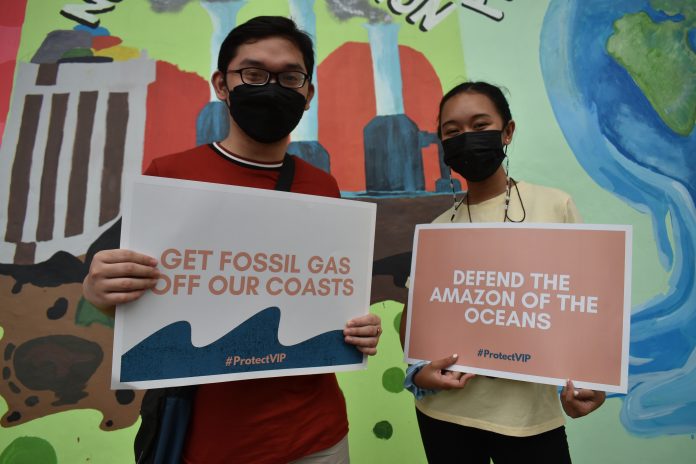Youth and pro-environment groups on Friday, April 29, covered a 25-meter wall with a mural calling for “urgent action” to protect a biodiversity hotspot in the province of Batangas.
The groups called on voters to use the May 9 elections “to shape a government that will do its part in protecting” the Verde Island Passage (VIP).
Renowned climate activist and muralist AG Saño urged the youth to use art to engage in various social, political, and environmental issues.
“There is always space for young people to participate in solution processes, and we encourage them to use their talents to send the message across to more people,” said Saño.
The Verde Island Passage is a strait that separates the islands of Luzon and Mindoro, connecting the South China Sea with the Tayabas Bay and the Sibuyan Sea beyond.
It is one of the busiest sea lanes in the Philippines being the main shipping route between the Port of Manila in the north and the Visayas and Mindanao in the south.
The 1.14 million hectare passage is extremely rich in marine biodiversity, the richest area in the entire Coral Triangle. It has been called the “Center of the Center of Marine Shorefish Biodiversity.”
“As the election nears, we hope voters and candidates running for public office will be reminded of our common duty to protect the precious biodiversity of VIP and treat the climate crisis like the emergency that it is,” said TJ Alcantara of the ECOSILAK – Youth for VIP.
Alcantara said dirty energy should not have a space in the next administration, adding that Filipinos must “vote for sustainable leadership and governance centered on people and the environment.”
Lawyer Avril De Torres, policy, and law program head of think-tank Center for Energy, Ecology, and Development, said the marine life in VIP is “in peril” due to the expansion of fossil gas facilities in Batangas province.
The province is home to five operating fossil gas power plants and site for eight new fossil gas and liquefied natural gas (LNG) plants and seven new LNG terminals.
De Torres said the impacts of the fossil gas facilities “will trigger even worse scenarios, and will gravely hurt local livelihoods that are dependent on the health of VIP.”









